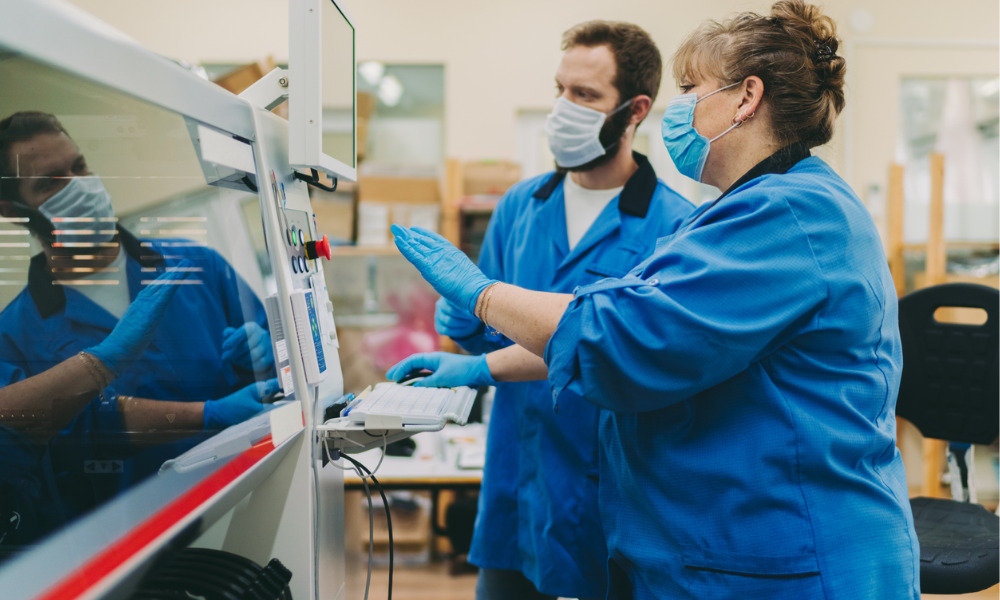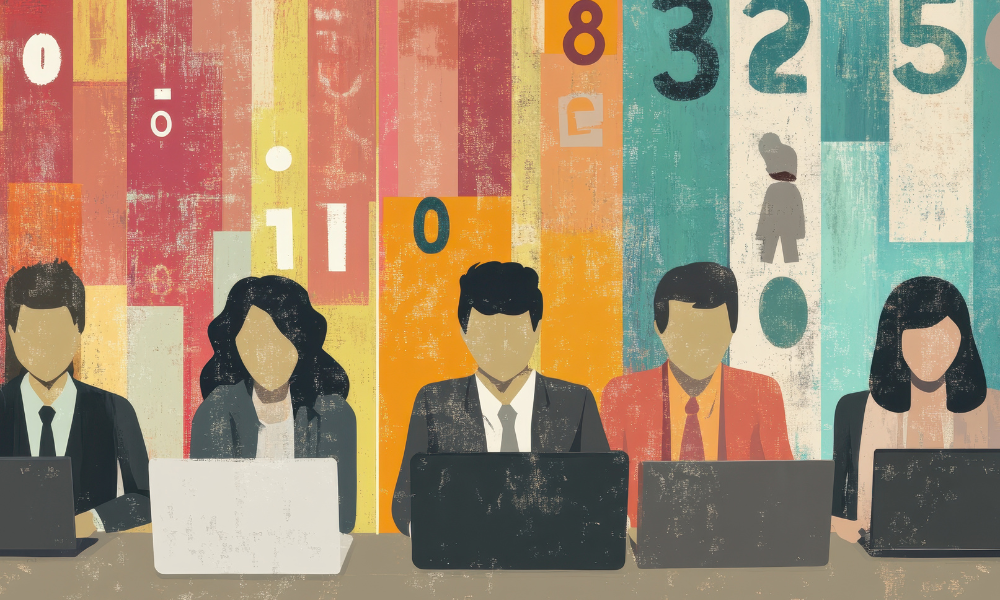6 key questions on workplace safety in the pandemic

Employees are going back into workplaces, albeit slowly, leaving employers wondering about how best to manage it safely. But what happens if an employee falls ill after returning to the workplace? Is the employer liable? What role does the employee play?
Canadian HR Reporter asked Ashu Ismail, personal injury lawyer at Campisi Personal Injury Lawyers in Toronto, for answers to these questions and more.
Q: What steps should an employer take before allowing a return to the workplace?
A: “If there’s a health and safety committee, depending on the size of your organization, it should probably be created or at least an individual [should become] responsible. Every work area needs to be inspected for its distance between other work areas.
“Generally what’s happened is what’s called the ‘standard of care:’ barriers can be between workstations; there should be rules around masks; there should be available and accessible the ability to wash hands frequently or the ability to sanitize; there should be frequent flushing of high-contact surface areas; there should be limits of crowds.
“Somebody should be walking around the office ensuring that it’s as safe as possible, that people know there are safety protocols in place and that they’re required to follow those safety protocols.”
Q: How should employees stay safe?
A: “It’s most important for employees to take it upon themselves to ensure that when they’re out in the community, they’re being safe [so] if they’re grocery shopping, they’re wearing a mask. I don’t think other employees would appreciate if they were in close quarters [with people] and breaking all kinds of rules, either in restaurants, bars or large gatherings. But if they, are then absolutely isolate, and if you come into the office, hopefully you have your own space with a door that can shut.
“If an employee believes that they have any symptoms, they should get tested, and let their employer know that they’re staying home until the test results come back and isolate. The burden on employees becomes even more difficult when their kids are going to school. But being as careful as possible, I believe is an obligation that we all share.”
Q: Is an employer liable if an employee becomes sick once they return to the workplace?
A: “Workplaces and employers have an obligation to keep the people in their workplace safe, so they only become liable when they fail in their responsibility to make efforts within their workplace. The efforts they would be making would be along the lines as set out by the Ministry of Labour, and following the Occupational Health and Safety Act.
“If an employer is doing absolutely nothing, and they’re demanding that people come in, they work in close quarters, and you can prove that the transmission occurred — and that’s a difficult part — you need to be able to prove that transmission occurred within those circumstances or at least more than likely occurred within that circumstance. Then you could have a situation where an employer can be liable.
“A second scenario is where you have an individual worker who is not following any rules or guidelines, is known to be partying every weekend in close quarters with tons of strangers, catches the virus and then comes into the workplace and shares it with everyone else. So long as you can prove that individual has subjected themselves to a personal liability and the employer, in so far as they know, that worker’s contact may also attract some vicarious liability.”

Ashu Ismail
Q: What happens if an employee knows someone who contracted COVID?
A: “Absolutely require sign-off from a physician: I would prefer to go further than just a test result, I would actually want the person’s treating physician to confirm as well that there’s no chance or possibility or risk of spread. That’s number one, because you want to make sure that no one we know is coming into the work environment who has the possibility of spreading it, otherwise let them work at home or find something else.”
Q: What are the rules around an unsafe workplace?
A: “The employee has the right, absolutely, to let the employer know that they feel like they’re in an unsafe work environment and to set out what those issues are. They have the right to refuse to work on their reasonable belief that it’s unsafe... The employer should absolutely address the concerns.
“When you deal with a tort claim in terms of an employer’s responsibility, it’s always the time: Somebody who experienced the transmission incident in late February 2020 is going to be different from the case of someone who’s experienced a transmission event in March, and even different than in April; but in late September 2020, we know you have to keep people apart, you have to protect the transmission of airborne and you have to clean surface areas frequently.”
Q: With COVID, when is it considered a personal injury versus an employment law matter?
A: “The employment law matters can arise almost instantaneously if someone feels the place is unsafe and they refuse to work and they’re having problems with their boss around when [they] have to come in, where [they] work and is it safe? Perhaps that person then doesn’t want to work or perhaps that person is pushed out. Those are definitely employment law matters.
“The personal injury part of it begins when you start to experience stress, emotional stress, anxiety: that we call aggravated damages in the employment relationship where they do have a good faith, your employer does, to manage the situation. It can begin with a stress or anxiety and then it can certainly come to life in the event that someone becomes ill and they can show proof that transmission occurred in the workplace as a result of the failure to take care of the workplace in the manner required, or believed to be required.
“Then you have a mash-up of both an employment-law situation and a personal-injury situation.”
Canadian HR Reporter has also talked to legal experts when it comes to employees travelling on business and how best to manage a safe return to work.




